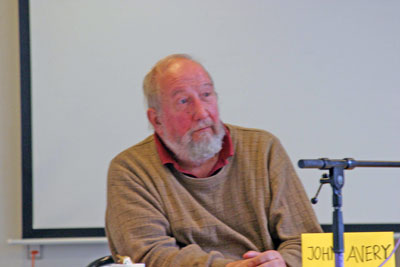An Attack On Iran Could Escalate Into Global Nuclear War
By John Scales Avery
06 November, 2013
Countercurrents.org
Despite the willingness of Iran's new President, Hassan Rouhani to make all reasonable concessions to US demands, Israeli pressure groups in Washington continue to demand an attack on Iran. But such an attack might escalate into a global nuclear war, with catastrophic consequences.
As we approach the 100th anniversary World War I, we should remember that this colossal disaster escalated uncontrollably from what was intended to be a minor conflict. There is a danger that an attack on Iran would escalate into a large-scale war in the Middle East, entirely destabilizing a region that is already deep in problems.
The unstable government of Pakistan might be overthrown, and the revolutionary Pakistani government might enter the war on the side of Iran, thus introducing nuclear weapons into the conflict. Russia and China, firm allies of Iran, might also be drawn into a general war in the Middle East. Since much of the world's oil comes from the region, such a war would certainly cause the price of oil to reach unheard-of heights, with catastrophic effects on the global economy.
In the dangerous situation that could potentially result from an attack on Iran, there is a risk that nuclear weapons would be used, either intentionally, or by accident or miscalculation. Recent research has shown that besides making large areas of the world uninhabitable through long-lasting radioactive contamination, a nuclear war would damage global agriculture to such a extent that a global famine of previously unknown proportions would result.
Thus, nuclear war is the ultimate ecological catastrophe. It could destroy human civilization and much of the biosphere. To risk such a war would be an unforgivable offense against the lives and future of all the peoples of the world, US citizens included.
To accept money from agents of a foreign power to perform actions that put one's own country in danger is, by definition, an act of treason. Why are members of the US Senate and House of Representatives, who demonstrably have accepted money from agents of a foreign power, the State of Israel, not accused of treason when they are bribed to take actions that put their country in danger? If members of the US government should vote for an attack on Iran, they would be traitors not only to the United States, but to all of humanity, and indeed traitors to all living things.
 John Avery received a B.Sc. in theoretical physics from MIT and an M.Sc. from the University of Chicago. He later studied theoretical chemistry at the University of London, and was awarded a Ph.D. there in 1965. He is now Lektor Emeritus, Associate Professor, at the Department of Chemistry, University of Copenhagen. Fellowships, memberships in societies: Since 1990 he has been the Contact Person in Denmark for Pugwash Conferences on Science and World Affairs. In 1995, this group received the Nobel Peace Prize for their efforts. He was the Member of the Danish Peace Commission of 1998. Technical Advisor, World Health Organization, Regional Office for Europe (1988- 1997). Chairman of the Danish Peace Academy, April 2004. http://www.fredsakademiet.dk/ordbog/aord/a220.htm. He can be reached at [email protected]
John Avery received a B.Sc. in theoretical physics from MIT and an M.Sc. from the University of Chicago. He later studied theoretical chemistry at the University of London, and was awarded a Ph.D. there in 1965. He is now Lektor Emeritus, Associate Professor, at the Department of Chemistry, University of Copenhagen. Fellowships, memberships in societies: Since 1990 he has been the Contact Person in Denmark for Pugwash Conferences on Science and World Affairs. In 1995, this group received the Nobel Peace Prize for their efforts. He was the Member of the Danish Peace Commission of 1998. Technical Advisor, World Health Organization, Regional Office for Europe (1988- 1997). Chairman of the Danish Peace Academy, April 2004. http://www.fredsakademiet.dk/ordbog/aord/a220.htm. He can be reached at [email protected]
Comments are moderated
